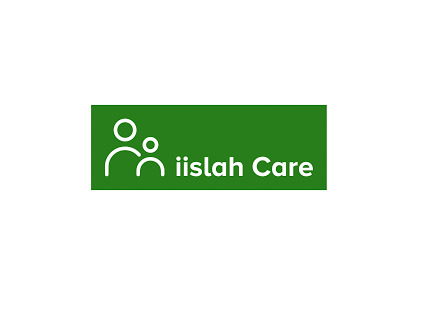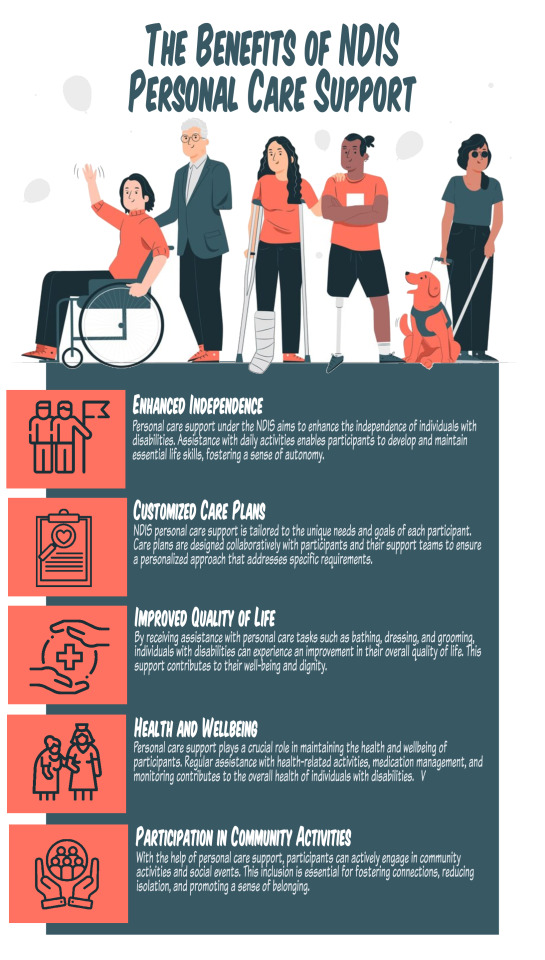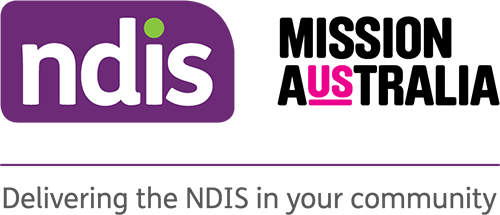#ndis personal care
Text

Explore the best STA accommodations for NDIS participants, featuring top-rated facilities, services, and amenities for a comfortable stay.
#ndis provider#disability services#ndis personal care#ndis accommodation#short term accommodation#ndis housing
0 notes
Text
Unsure About NDIS Community Services? Get Answers Here!
Living on the beautiful Sunshine Coast shouldn’t be limited by disability. The National Disability Insurance Scheme (NDIS) offers a range of community services to empower you to live your best life. But with so much information, it’s natural to feel unsure about NDIS community services. Here, we’ll clear up any confusion and show you how these services can benefit you.
1 note
·
View note
Text
assistance with daily life ndis
By understanding the intricacies of planning, the expansive range of covered activities, the role of technology, and the power of self-advocacy, NDIS participants and their support network can turn daily tasks into opportunities for personal growth and fulfillment. Remember, at the core of the NDIS 'Assistance with Daily Life' category is the individual, and your unique needs and aspirations should always steer the ship.
1 note
·
View note
Text
Review details NDIS commission's failures on autism program | ABC News
youtube

#ndis provider#ndis price guide#ndis services#ndis registration#ndis personal care#ndis#ausgov#politas#auspol#tasgov#taspol#australia#child abuse#tw abuse#abuse#fascism#capitalism#law#morals#ethics#fuck neoliberals#neoliberal capitalism#anthony albanese#albanese government#class war#autism#disability#unlawful#morally bankrupt#irabina
0 notes
Text
https://keeperscare.com.au/
Keepers Care is an NDIS registered provider driven by a commitment to deliver exemplary care and services aimed at enriching the lives of participants while fostering wellness.
1 note
·
View note
Text
What Does the NDIS Fund?
The NDIS funds reasonable and necessary supports relating to your disability. This includes things that help you pursue your goals, live more independently and take part in community activities. However, the NDIS does not fund mainstream costs such as housing or food.
It is important to remember that everyone’s needs are different. Your planner will assess your situation and the support you need.
The NDIS

The ndis care endeavour hill is a great opportunity for people with disability to gain more independence and make a positive contribution to the community. It also provides a range of benefits for those who use it, including increased time with family and friends, access to new skills and employment opportunities, and better quality of life.
The NDIS can be accessed by anyone with disability in Australia. It offers support for a wide variety of needs, including accommodation, therapies, daily living, and equipment. It also helps participants get more out of their lives by providing them with more money to spend on activities and services they enjoy. These benefits are also good for the economy, as work by people with disabilities generates taxable income and reduces spending in other areas of government.
NDIS funding
The NDIS is a new way for Australians with disability to get the support they need. It provides individualised funding packages based on an assessment of your needs and goals. These are then matched with approved providers. Funding is available for core, capital and capacity building supports.
NDIS participants can use their funding to pay for a variety of things – including leisure activities like seeing a live band or going to the movies. They can also engage a support worker to attend these venues with them for companionship. However, NDIS funds cannot be used to purchase alcohol. So it is important to be discerning about how you use your NDIS.
NDIS planning
The ndis home care Melbourne planning process can be a daunting task. It is important to understand your options and engage a provider that you can trust. You can do this by asking questions, going on a tour or doing a trial with them. Endeavour Foundation can help you with this by providing you with information on local service providers.
During your NDIS planning meeting, you should provide evidence of your day to day support needs. This evidence should be provided in the form of a participant statement. It is best drafted prior to the NDIS planning meeting.
The NDIS will also ask you to choose how you want your plan managed – agency managed or self-managed. For children in OOHC, their OOHC caseworker or authorised carer may attend the NDIS planning meeting as the child representative.
NDIS goals
A good NDIS goal is one that focuses on the outcomes you want to achieve with the help of your NDIS plan. It should also be measurable and time-bound. In addition, the goal should be personal to you and reflect your aspirations. It is a good idea to have both short term and long-term goals.
It is a good idea to seek input from friends and family, as well as from therapists and disability professionals, when drafting NDIS goals. You may also find it helpful to discuss your goals with a local area coordinator or a support coordination service provider.
It is also a good idea to prepare a planning booklet prior to your NDIS meeting or plan reassessment. This will ensure that you have all the necessary information ready for the meeting.
NDIS support
If you’re not sure whether or not your disability is eligible for ndis personal care support, you can ask the National Disability Insurance Agency (NDIA) to check. They will ask for details about your disability and will assess whether it’s reasonable and necessary. They will also tell you what funding you can get for your supports.
NDIS supports are personalised to your goals and needs. You can choose from a wide range of service providers. If you’re not satisfied with your NDIS plan, you can discuss it with your support coordinator. They may be able to change your plan or refer you to other services.
Managing your NDIS budget is a complex process, but with Budgetnet, it’s easy and quick. We can help you track your spending and make claims in a matter of minutes.
0 notes
Text
The Benefits of NDIS Personal Care Support

NDIS personal care support provides essential assistance to individuals with disabilities, fostering independence and enhancing their overall quality of life. Tailored to the unique needs of each participant, this support covers daily activities like bathing, dressing, and grooming, promoting autonomy and dignity. By receiving personalized care plans, individuals can actively engage in community activities, leading to a sense of belonging and reducing isolation.
0 notes
Text
The Importance of NDIS Personal Care
NDIS personal care is an essential support service that enhances the quality of life for people with disabilities. It provides essential aid with bathing, dressing, grooming, toileting, and meal preparation.
NDIS participants can receive this support as part of their Core Supports budget – Assistance with Daily Life. The NDIS considers many factors before funding this support service.
Personal hygiene
Personal hygiene involves keeping individuals clean and well-groomed. This can boost a person’s self-esteem and confidence, promoting mental health and overall wellbeing. It is also crucial for maintaining good health and preventing secondary conditions like pressure sores and urinary tract infections.
Performing daily tasks like bathing, dressing and grooming can be challenging for people with disabilities. This is where NDIS personal care comes in, providing essential assistance and improving quality of life.
Caregivers can assist with personal care routines like showering, washing hands, brushing teeth and hair, and using the toilet. They can also provide assistance with incontinence management, if required.
NDIS personal care services are highly customised and flexible. They can be delivered in the comfort of a participant’s own home, eliminating the need for disruptive relocations to specialized facilities. Moreover, they can improve quality of life and ensure independence, all while respecting each individual’s dignity. In addition, caregivers can help with preparing meals and other household chores.
Meal preparation
NDIS personal care is a vital service that has a huge impact on the lives of people with disabilities. It offers essential aid with bathing, dressing, grooming, and toileting. It also includes meal preparation and housekeeping services. Moreover, it can help maintain connections to the community and social activities.
Meal preparation involves planning meals, cooking, preparing ingredients, and setting out food, utensils, and plates. However, it does not include the cost of meals. Meal preparation services can be provided in a person’s home or at a centre.
The National Disability Insurance Scheme (NDIS) has changed the lives of people with disability. It has revolutionised the way support is delivered to people with disabilities and helped them achieve independence. But, it is important to understand what NDIS personal care can and cannot do for you. It’s also important to find a reliable and trusted service provider to get the best out of your NDIS plan. Excel Care Group is a registered NDIS service provider in Melbourne that offers a variety of personal care and daily living supports to individuals with disability.
Toileting
Personal care includes activities of daily living like bathing and showering, grooming,
dressing, toileting, and managing your appearance. While these may seem mundane, they can have a significant impact on a person’s quality of life. Fortunately, the NDIS provides support services that can help you manage your personal care needs.
Assisting with these tasks can be complex and requires a high level of skill and experience. A skilled and compassionate caregiver can provide support that helps you maintain your independence and live a happy and fulfilling life.
The NDIS considers personal care supports to be reasonable and necessary when deciding on your available funding. This means that the support must be directly related to your goals, purpose, and aspirations. In addition, it must be considered whether there are less intrusive options that would meet your needs in a similar way. The ndis self care also takes into account the wishes of the participant’s family and friends regarding intimate personal care.
Dressing
NDIS personal care services are an essential part of a participant’s daily routine. They help participants stay healthy, safe and well-groomed. They can also help them feel more confident in social situations and improve their ability to connect with others.
Personal care can include dressing, grooming and putting on or taking off medically necessary braces and artificial limbs. It can also include choosing, putting on, and fastening or removing clothing, footwear, and tucking in undergarments. It may also include cleaning and securing hair and managing haircare products.
The NDIS considers a number of factors before including a personal care service in your plan. It must be reasonable and necessary, and it must allow you to pursue your goals, objectives and aspirations over time. In addition, it must not detract from your health and wellbeing.
0 notes
Text

Discover a world of possibilities with NDIS Day Programs Blacktown. Your adventure starts here!
#ndis personal care#ndis services#ndis provider#disability program#disability services#disability care
0 notes
Text
NDIS participants, all that’s required is having a personal care assistant a few times a week to help attend appointments or access the community. While for others, personal care assistance with tasks such as bathing, toileting and meals is a daily occurrence.
0 notes
Text
The NDIS Support Service

If you are eligible for an NDIS plan, you can take advantage of a NDIS support service. The service can help you find resources and connect with other agencies that can help you meet your needs. The service is based on your needs, is selectable, and flexible. It provides information, education, and support.
NDIS supports people with a psychosocial disability
If you have a psychosocial disability, you may be eligible for a NDIS plan. This plan can provide assistance with daily activities and can help you become more independent. It can also help you gain better social and economic participation. You can choose to get help with some areas of your life, such as communication, education, or mobility.
The NDIS funds supports such as recovery coaching to help people improve their health and wellbeing and regain control of their life. These supports are not intended to treat the underlying mental health problem, but rather improve the ability of the person to function and engage in their community. However, the NDIS cannot fund diagnostic mental health supports, which are provided by other systems.
If you have a psychosocial disability, it is important to get a formal diagnosis from your GP. They can refer you to specialist supports if necessary. In addition, a Local Area Coordinator can help you apply for the NDIS.
It is based on individual needs
The NDIS supports individuals by assessing their individual needs and tailoring support to them. The NDIA also focuses on the psychosocial impact of the disability, rather than just the physical limitations. This means that if you are suffering from multiple conditions, the NDIS is still likely to be able to support you. To access the NDIS, you will need to apply for the program.
The NDIS is an initiative for people with disabilities living in Australia. It is an ambitious new approach to individualised disability support based on social insurance. The NDIS is funded through general taxation and an income levy. The program is based on individual needs and aims to give Australians with disabilities entitlement to social services. This paper reviews the literature about the NDIS and describes an action research project that uses data from participants to understand the benefits and drawbacks of individualised disability support. The data reveals a basic gap between what people know about the NDIS and what is needed to get it right.
One example is an NDIS participant who was incarcerated for a crime. These people may have a disability and may have been unable to access services because of their crime. Having their disability funded under the NDIS allows them to access additional support after their release. The NDIS also provides support for people who have disabilities and are in the custody system. They can access this support for life if they meet the criteria.
It is flexible
The NDIS support service is flexible, allowing participants to make the most of their NDIS plan, while also maintaining consistency. It is designed to help participants understand and implement funded supports, and to link participants with other services. Originally, the NDIS support service was only available to participants who received funds through the NDIS, but the changes have meant that it is now available to participants of all income levels.
The NDIS supports people with a disability to live in appropriate housing, participate in community and social activities, and maintain a job. It also provides training and assistance for further education, and supports the transition from school to employment. The NDIS does not fund memberships to gyms or other leisure facilities.
It is provided by selectability
Selectability is a not-for-profit mental wellbeing service providing recovery oriented support to people in northern, central and western queensland. The organisation's service area stretches from Cairns to Mackay, including Charters Towers, Palm Island, Ingham, Mt Isa and Bowen. Recently, the service has expanded to include Proserpine and Collinsville. Their services are tailored to meet the individual needs of their participants and are based on their needs and goals.
The NDIS support service in Melbourne an inclusive, person-centred approach to service delivery. This approach is aimed at supporting individuals with disabilities to participate actively in decisions about their care and supports. Workers should engage directly with the person affected by decisions about services and supports and involve them in decisions. By involving people in decision-making processes, they can ensure that people are engaged and heard.
#ndis personal care#ndis assistance with self care#ndis support service#ndis services melbourne#in home aged care melbourne#home care services melbourne#disability support melbourne#disability services melbourne
0 notes
Text
Assist / prod-personal care / safety in Piara Waters | Carespace
At CareSpace Australia, we provide top-notch NDIS Assistive Products for Personal Care and Safety, ensuring individuals have the right tools to enhance their daily living experiences. Our dedicated team understands the importance of independence and safety, which is why we offer a wide range of high-quality assistive products tailored to each person's unique needs. From mobility aids and personal care items to safety equipment, we strive to empower individuals to live life to the fullest. Our expert staff guides participants in selecting the most suitable products, making sure they are comfortable and easy to use. With CareSpace Australia's NDIS Assistive Products for Personal Care and Safety, you can embrace greater independence, confidence, and peace of mind in your daily activities. Trust CareSpace Australia to provide the support you need to live life on your terms.
2 notes
·
View notes
Text
Albury/Wodonga NDIS plan management! Take control & maximize your NDIS funds. Get expert help with plans, budgets & finding support.
0 notes
Text
A Guide to Finding Quality Aged Care in Darwin
As our loved ones age, ensuring they receive the best possible care becomes a top priority. For those living in Darwin, there are numerous aged care options available that cater to various needs and preferences. This guide will help you navigate the aged care landscape in Darwin aged care, ensuring you find the right facility or service for your elderly family members.
Understanding Aged Care Services
Aged care encompasses a range of services designed to support elderly individuals who need assistance with daily living, medical care, and social engagement. In Darwin, these services include:
Home Care: Providing support services in the comfort of one's home, ideal for those who wish to maintain their independence.
Residential Aged Care: Full-time care in specialized facilities that offer a range of services from basic assistance to advanced medical care.
Respite Care: Temporary care that allows primary caregivers to take a break or manage other responsibilities.
Palliative Care: Specialized care focused on providing relief from the symptoms and stress of serious illnesses.
Steps to Find the Best Aged Care in Darwin
1. Assess Your Needs
Begin by evaluating the specific needs of your loved one. Consider factors such as:
Level of Care Required: Determine whether they need basic daily assistance, specialized medical care, or support for conditions like dementia.
Personal Preferences: Understand their preferences for location, type of care, social activities, and cultural considerations.
Financial Situation: Review your budget and explore available financial assistance, including government subsidies.
2. Research Local Aged Care Providers
There are numerous resources available to help you find aged care options in Darwin:
My Aged Care: The Australian Government's My Aged Care website offers a comprehensive directory of aged care providers, along with detailed information about services and eligibility.
Local Health Services: Contact local health services and community centers for recommendations and advice.
Online Reviews: Look at online reviews and testimonials from current and former residents and their families to gauge the quality of care provided.
3. Visit and Evaluate Facilities
Once you have a list of potential providers, arrange visits to assess them firsthand. Pay attention to:
Cleanliness and Safety: Ensure the facility is clean, well-maintained, and adheres to safety standards.
Staff Interaction: Observe how staff interact with residents. They should be compassionate, respectful, and professional.
Amenities and Activities: Check for amenities such as gardens, common areas, and scheduled activities that promote social engagement and well-being.
4. Understand the Services Offered
Different aged care facilities in Darwin offer various services. Ensure the facility you choose provides the necessary services for your loved one's needs, including:
Medical Care: Access to doctors, nurses, and other healthcare professionals.
Personal Care: Assistance with bathing, dressing, and grooming.
Nutritional Support: Healthy and balanced meal plans tailored to residents' dietary requirements.
Social Programs: Activities and programs that encourage social interaction and mental stimulation.
5. Review Financial Considerations
Understanding the financial aspects of aged care is crucial. Be sure to:
Compare Costs: Look at the costs of different facilities and what is included in the fees.
Explore Financial Assistance: Investigate government subsidies and financial aid programs available to help cover costs.
Understand Contracts: Carefully review contracts to understand all fees, charges, and the terms of service.
6. Plan for Future Needs
Aged care needs can evolve over time. Choose a facility that offers a continuum of care, allowing your loved one to transition to higher levels of support if necessary.
Benefits of Quality Aged Care
Selecting the right aged care service in Darwin has numerous benefits:
Enhanced Quality of Life: Professional care and social activities can significantly improve overall well-being.
Peace of Mind: Knowing your loved one is in a safe, supportive environment provides peace of mind.
Improved Health Outcomes: Access to medical care ensures better management of health conditions.
Social Engagement: Opportunities for social interaction help prevent isolation and promote mental health.
Conclusion
Finding the right aged care facility or service in Darwin involves careful research and consideration of various factors. By assessing your loved one's needs, researching local options, visiting facilities, and understanding the services and financial aspects, you can make an informed decision that ensures their comfort, safety, and happiness.
For more information, visit the My Aged Care website or contact local aged care providers in Darwin. Prioritize the well-being of your elderly loved ones by choosing the best aged care solution tailored to their needs.
My Horizon Community Services was created for people with special needs, friends and families who need a better way to access individualised disability support. We provide a wide range of tailored, flexible and quality disability services and support coordination for people living with disabilities for their choice and needs. We are based in Brisbane, Queensland.
0 notes
Text
Accessing NDIS Supports to Achieve Your Goals
NDIS participants can access a wide range of supports to help them achieve their goals. These include core, capital and capacity building supports.
These are outlined in an individualised plan and tailored to the needs of your loved one. This can involve behavioural support, transport and even connection to services such as Home Caring.
Person-Centred Care Plans
Person-centred care is a style of care where your needs and interests are taken into account. It is a collaborative approach to care that encourages open and transparent communication between you and your disability support providers. This allows for better health outcomes and greater client satisfaction. Patients are more likely to stick to their treatment plans and take their medication if they feel respected, involved, and in control of their care. This can significantly reduce the need for emergency care and prevent re-admissions to hospital.

Comprehensive care plans are a critical component of person-centred care. By clearly defining short and long-term goals, they enable ndis care participants to tailor their supports accordingly. Moreover, they can set realistic timeframes to achieve their goals and monitor their progress along the way.
Creating a care plan requires collecting and documenting essential participant details such as their personal information, medical history, and disabilities. In addition, it is necessary to establish effective communication channels with participants and their families/carers. Furthermore, regularly reviewing and updating care plans can ensure they remain relevant to each participant’s individual needs.
Supported Living in the Home
Getting access to the right care for people with cerebral palsy or similar disabilities is an important part of living a happy life. In some cases, it may be necessary to move out of family homes and into a shared home or community accommodation. This is a great way to get the right help while fostering independence.
This type of accommodation is ideal for people with high support needs who do not have the ability to live in their own homes or are unable to manage their own finances. Supported living can help with daily activities and also provides housing that is fully accessible.
To be eligible for this, participants will need to have a report by an Allied Health professional indicating that the accommodation is reasonable and necessary. This is to ensure that the NDIS planner understands the need for a particular service and can make the right decision. The Allied Health reports can include recommendations on environmental modifications that will promote access.
Employment Support
If you’re an ndis care providers participant and want to get a job, or start working for the first time, NDIS disability employment services can help you find work that suits your skills and interests. You can also receive training to help you build the skills you need to find and maintain work, and assistance with moving into open employment or Australian Disability Enterprises (ADEs). These supports are covered by the ‘Finding and Keeping a Job’ category in your Plan budget.
If there are barriers you anticipate, it’s important to talk about them with your NDIS planner or local area coordinator during your planning meeting or at a reassessment. Providing clear goals will improve your chances of having NDIS employment support included in your plan.
NDIS participants can also access general training and coaching to address specific barriers they may face in a workplace, like staying focused or managing behaviour. To learn more about NDIS employment support, download our free Leap in! Inclusive Employment ebook.
Social Inclusion
Social inclusion is a fundamental human right that is enshrined in the Universal Declaration of Human Rights and other international treaties. The NDIS aims to promote this right by offering participants individualised funding which is designed to meet their goals.
Support services are designed to facilitate community engagement – a key ingredient in a sense of wellbeing and personal empowerment. This is done by providing individuals with access to leisure, education, and employment support services, as well as other supports that help them to connect with their community.
The ndis personal care has a strong emphasis on individual choice and control, with its personalised approach enabling participants to choose their own support providers and budgets. However, many issues persist at the intersections of NDIS services with other systems including health, transport, child protection, justice, hospitals, and aged care. In particular, some services that are funded by the NDIS but delivered on an ‘in-kind’ basis by state and territory governments can limit choice and control for participants.
0 notes
Text
The Importance of NDIS Personal Care
Personal care includes everyday activities like bathing, grooming and toileting. These services are part of the NDIS core supports budget – ‘Assistance with Daily Living’.
NDIS personal care provides empathetic support for the daily needs of participants. This includes aid with bathing, grooming, toileting, and meal preparation. It also enables them to live with dignity.
Personalized care
Personal care is a vital part of a person’s daily routine. It ensures that they are clean and comfortable, reducing the risk of infection and illness. It also helps them maintain their independence.
Personalized care is an approach that recognises the unique needs, skills and experiences of people with disability. It focuses on what matters most to the individual, and is driven by an understanding of their goals and aspirations. It also involves an ongoing relationship between the person and their support network.
Personalized care is an integral part of the NDIS, and it includes a wide range of services. This includes assistance with bathing and ndis personal care hygiene, as well as specialised toileting support. These services can be delivered in the comfort of a person’s home, eliminating the need to move to a specialist care facility. This makes it a viable option for many people with disabilities. It can also be more cost-effective than a traditional care package.
Safety
Safety is a very important part of personal care. It’s essential that NDIS participants receive safe and secure support that ensures their wellbeing. This can be done by choosing a provider that offers services such as specialized clothing, continence tools, bathroom equipment, and modified beds. This equipment will allow individuals to perform daily tasks and stay safe and healthy.
It’s also vital that NDIS participants have access to a team of trained support staff who are committed to providing safe and reliable personal care. If NDIS support workers notice unexplained marks or bruising, they should report it immediately. This is a sign of neglect, abuse, or an underlying health condition and may require medical attention. Please refer to the NDIS LWB 5554 Responding to Unexplained Bruising – Procedure for more information.
Independence
Personal care services are a crucial part of the NDIS, and they can make a big difference in the lives of people with disabilities. They provide essential assistance with bathing, dressing, grooming, toileting, and more. This support can improve a person’s quality of life and increase their confidence in social situations. It can also help them avoid secondary conditions like pressure sores and urinary tract infections.
NDIS personal care is a specialised service that can be tailored to your specific needs. It provides essential daily care, such as bathing and getting dressed, as well as assistance with feeding, bowel management, and medication administration. In addition, it can assist with social activities and pursuing hobbies. It is also possible to receive personal care support from a friend or family member, although this should be discussed with your NDIS plan manager. NDIS supports are designed to empower participants and give them control over their life. That’s why it’s important to choose a provider that can offer you personal care and other disability services.
Dignity
Dignity is an idea that has a deep impact on many aspects of human life. It is the principle that every person is worth respect and has inherent value, regardless of their condition. This concept is central to the National Disability Insurance Scheme (NDIS). NDIS personal ndis self-care providers understand the importance of dignity and are trained to provide assistance that promotes individual’s autonomy and sense of selfworth.
Managing daily hygiene and grooming can be difficult for individuals with disabilities. Personal care services can help maintain proper hygiene and prevent secondary conditions such as pressure sores or urinary tract infections. They can also help with meal preparation and household chores.
NDIS personal care is a critical component of the National Disability Insurance Scheme that improves the quality of life for participants. Its personalized approach, efficiency, and flexibility make it a vital part of the NDIS care package. It can be accessed by anyone who meets the eligibility requirements.
0 notes